Our group investigates various flow phenomena encountered in aerospace applications as well as in fundamental flows. We employ high-fidelity spatio-temporal simulations (DNS, LES, Hybrid LES/RANS) in conjunction with state-of-the-art analysis tools (operator-based and data-driven) for flow characterization and subsequent control prospects. .
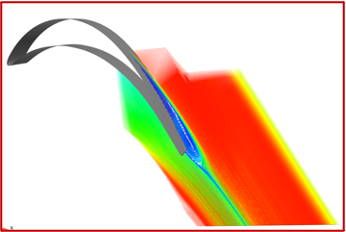
Flows in several turbomachinery components (low- and high-pressure turbines/compressors) are extremely complex due to the presence of separation, transition and relaminarization. Predictions of each of these three phenomena are beyond the current abilities of turbulence models. We employ high-fidelity approaches including DNS, LES and hybrid LES/RANS for investigation of losses and heat-transfer components in these flows. .
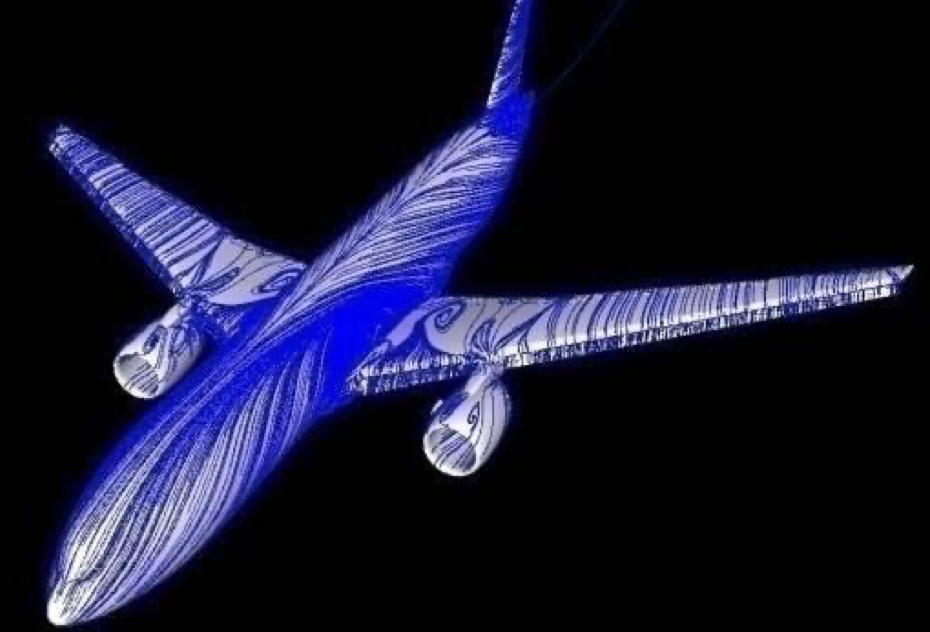
We perform high-fidelity simulations to investigate unsteady aerothermodynamics of aerospace vehicles (aircraft, missiles, rockets, spacecraft, UAVs). Current focus areas are- (1) high-lift analysis with the deployment of flaps and slats, (2) optimal wing designs for turboprops with consideration of wing-propeller interactions, (3) unsteady flow analysis in cargo aircraft with upswept afterbody configurations, and (4) hypersonic flows.
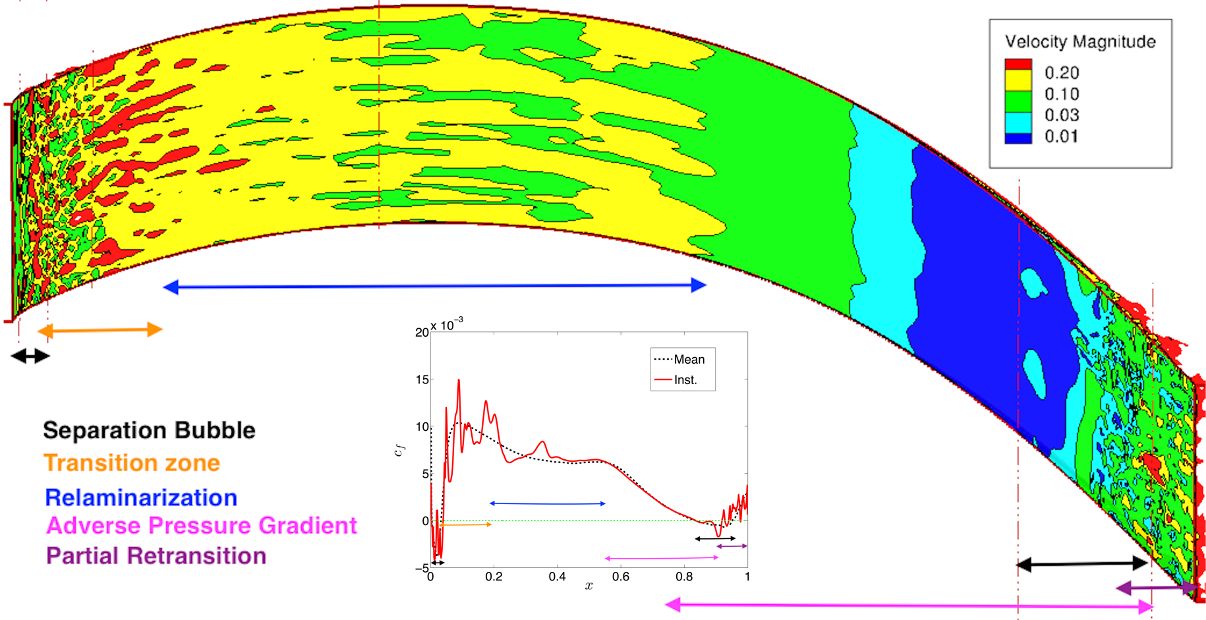
We augment advanced theoretical knowledge and high-end datasets with state-of-the-art numerical approaches to improve existing models or propose new models. Currently, the efforts are directed towards- (1) improve transition models based on DNS/LES data and machine learning, (2) characterize reverse transition (relaminarization) and propose models in the framework of RANS, (3) include curvature and displacement effects in boundary layer simulations.
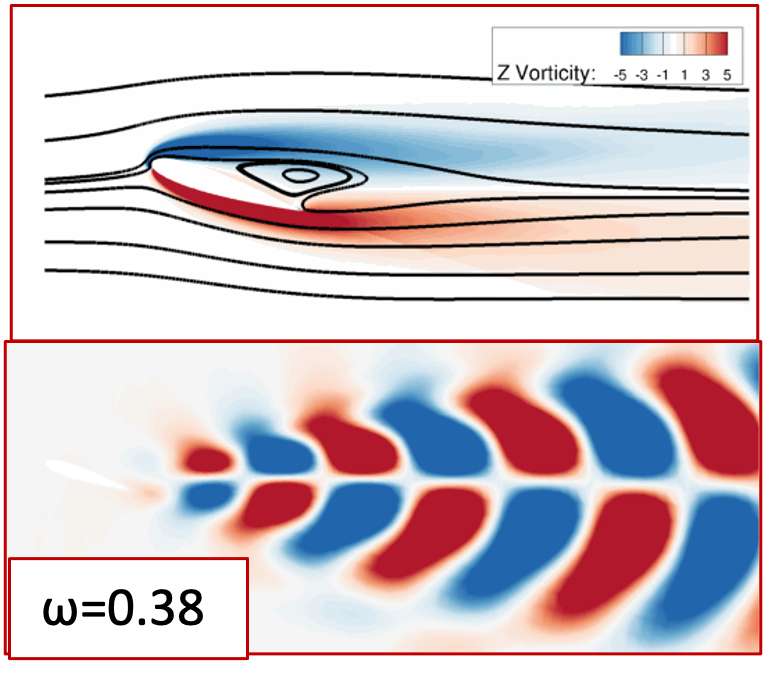
We employ advanced linear stability analysis (LSA) - both modal (local/BiGlobal/TriGlobal) and non-modal (transient growth) - to investigate growth/decay of the key dominant modes in laminar and turbulent flows. Further, we use resolvent and adjoint approaches to find the optimal flow control. For complex turbulent flows, our group uses 'Mean Flow Perturbation (MFP)' approach for linearized analysis.
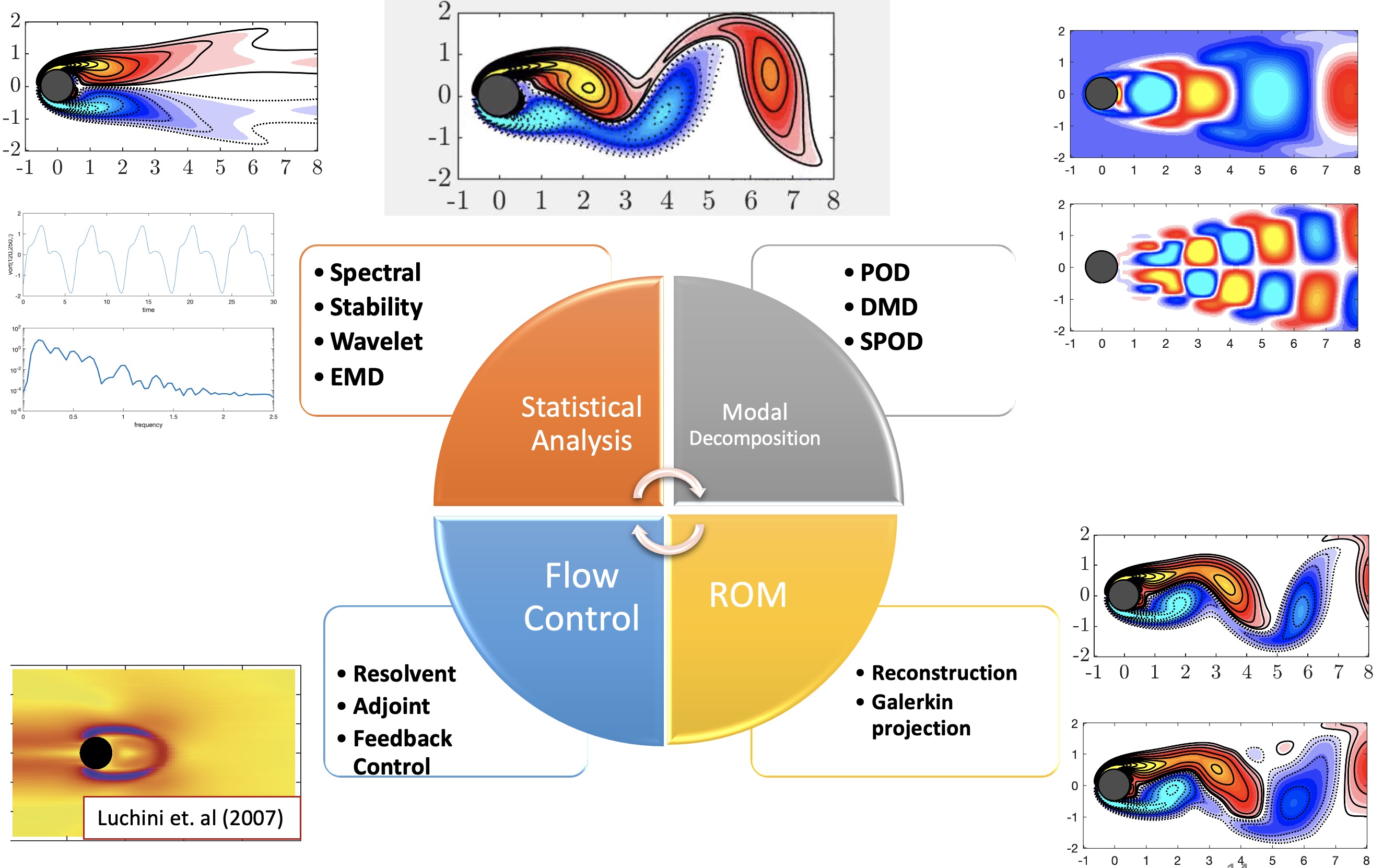
Spatio-temporal datasets obtained from a flowfield, either from an experimental or a numerical approach, are usually high-dimensional and analyzing them require optimal tools. We employ state-of-the-art statistical, spectral and low-order decomposition (POD/DMD) techniques to gain useful insights from these datasets. Further, we also build reduced-order models based on decomposed data. Our group has fully parallel POD/DMD codes that can work on several million grid points.
Several research codes are available in the group for high-fidelity computation and analysis purposes. These codes support flows from low subsonic to hypersonic regimes.
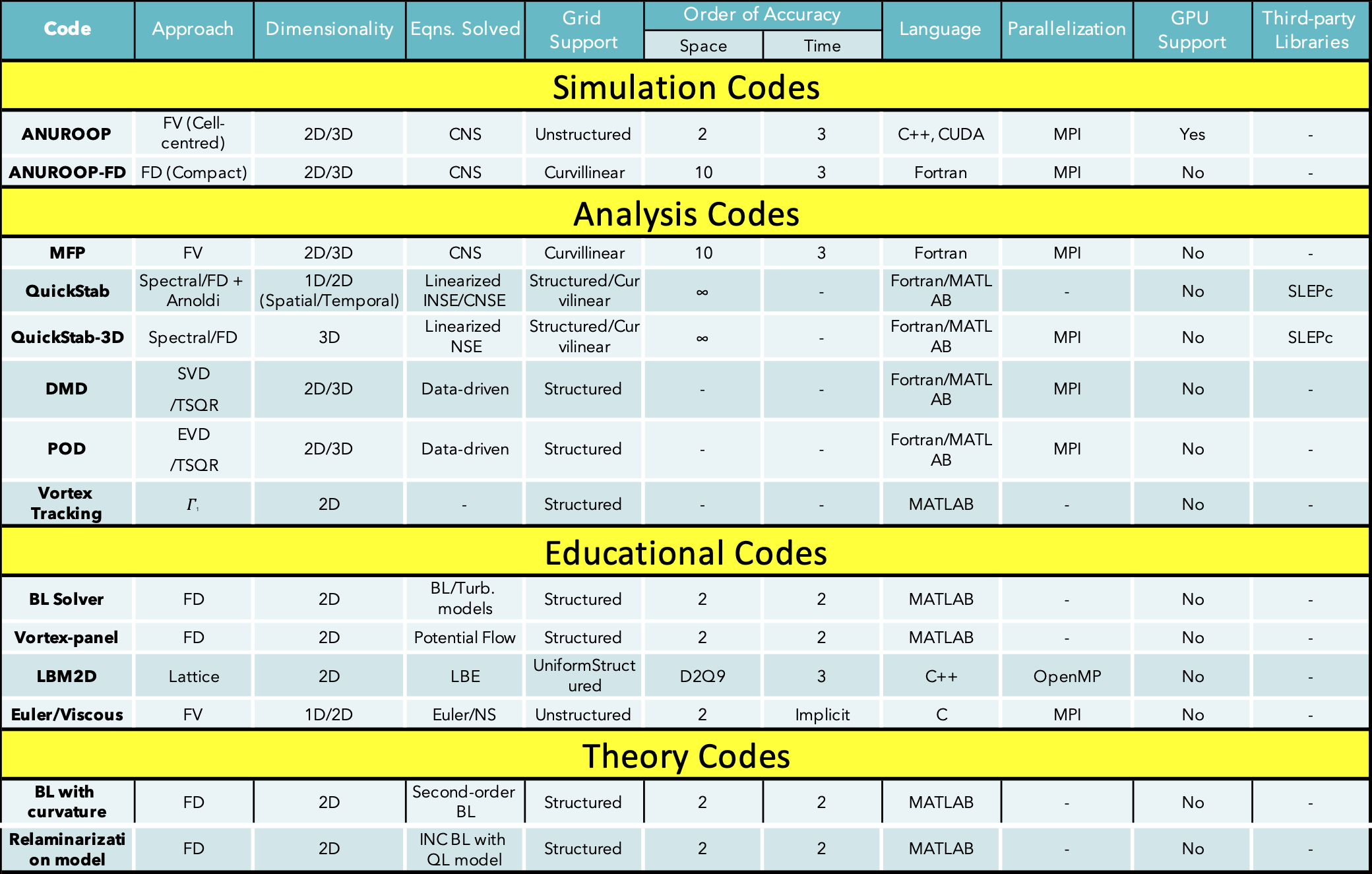
QuickStab: Local and BiGlobal Stability (Temporal & Spatial) and Resolvent Solvers.
Spectral Tools: FFT, STFT, Wavelet, Bi-coherence, HHT.
Decomposition Tools: DMD, POD/SPOD, EMD.
Linearised Analysis Tools (iterative): Mean Flow Perturbation (MFP), Shift-Invert Arnoldi.